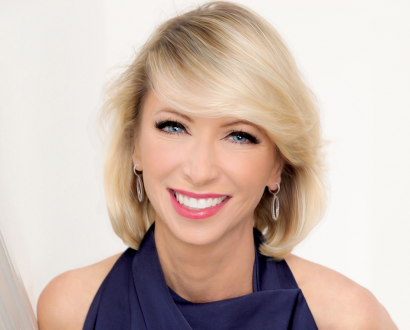How empowering employees can have exciting consequences for your business

The workplace balance of power has shifted dramatically over the last few years. No longer are offices typically dominated by ‘the boss’ or similar powerful figureheads. Instead, employees at all levels have found themselves empowered by companies ready to nurture their resources.
At the same time, the nature of power in business has changed for the better, says Amy Cuddy, social psychologist, body language expert and World Business Forum speaker.
"First, we have to define power: social or formal power is control over other people, their choices, their outcomes, and control of resources and decisions that affect other people," she says.
This kind of power is typically hierarchical and zero-sum; the more power one has, the less power some other person or people have. Personal power, on the other hand, is more of a psychological quality. Better yet, it’s infinite.
"To have control over our own internal resources – so skills, knowledge, emotional intelligence, empathy – activates the behavioral approach system," Cuddy notes. "It makes us more optimistic, able to take risks, create and be cognitively agile, courageous and even willing to protect or stand up for others when necessary. I think there’s a much greater focus on that kind of power today than there was 10 years ago."
Body language

It was around that time that Cuddy, Professor and Researcher at Harvard Business School, delivered a TED Talk on corporate body language (and specifically "power posing") that sent shockwaves through the business world.
More than a decade on, Cuddy believes effective body language remains out of reach for too many business leaders – particularly men.
"I still see men using body language that conveys dominance rather than confidence," she says. "Feet too far apart, speaking too loudly, looking as if they’re trying to control, not connect with, the audience. And that just doesn’t work."
Effective body language conveys a combination of confidence (not dominance) and trustworthiness, she says. "It tells people, ‘I’m comfortable and I’m worth listening to,’ and also, ‘I respect you and I’m interested in learning about you and earning your trust.’ It’s body language that’s less choreographed, less scripted and more responsive to what’s happening in the present."
It’s a similar story for the concepts of boldness and confidence, both of which Cuddy says have developed beyond the stereotypes of yesteryear.
"The ‘bold, confident’ leader as someone who never asks for help, who has all the answers, who shows little emotion or compassion – they’re a thing of the past," she explains.
"A person’s ability to be bold enough to take some personal risks and confident in a genuine, grounded way will, in my opinion, always be helpful to them in getting in the door and being heard."
The best leaders, she says, are confident enough to listen, to change direction when necessary, to feel and express compassion, to be open to a diverse range of employees and ideas about work, and are bold enough to stand up to bullies and abusive peers, to admit when they’re wrong and to adapt to a changing world and workforce.
"What ‘boldness’ and ‘confidence’ mean for leaders in the workplace has, to the benefit of everyone, evolved in the last decade, and even more so in the last few years, given the COVID-19 pandemic," she says.
Recruit and retain the best
How this power dynamic shift affects recruitment and talent retention is a matter of communication, and one that Cuddy will address when she takes the WOBI stage in Sydney in October 2023 alongside filmmaker James Cameron, leadership coach Marshall Goldsmith, former Saatchi & Saatchi boss Kevin Roberts and social psychologist Modupe Akinola.
"I love working with the World Business Forum," she says. "I find the participants uniquely engaged and optimistic – they’re really happy to be there and always eager to understand and apply what they’re learning about."
This year, the concept of ‘recruit and retain the best’ will come under the spotlight during Cuddy’s seminar on talent.
"I have a different take, which I learned from Bob Chapman, CEO of Barry-Wehmiller and author of the bestselling leadership book Everybody Matters," Cuddy says.
"He’s a phenomenally successful leader and he does that not by focusing on recruiting new people, but by genuinely, compassionately taking care of and rewarding the people who are already working for him. He always tells me, ‘It’s not about getting the right people on the bus; it’s about having a safe bus, and making sure that the person driving the bus – the leader – knows how to take the people to a better place.’"
With such practices improving workplace culture, both new and long-term employees have found themselves with a louder voice than ever. "They’re less tolerant of and more likely to reject abusive workplace situations," Cuddy acknowledges. "If employers want to keep good people, they’re going to have to ask their employees what works for them and actually listen and adapt to their answers."
It’s this sense of company-wide empowerment that has the potential to take your business to new heights, she adds.
"We should strive to help everyone in our places of work to feel more powerful, because it tends to bring out the best in us."
Amy Cuddy will take the stage at the World Business Forum in Sydney on 11 and 12 October, 2023. Registration is now open at www.wobi.com/wbf-sydney